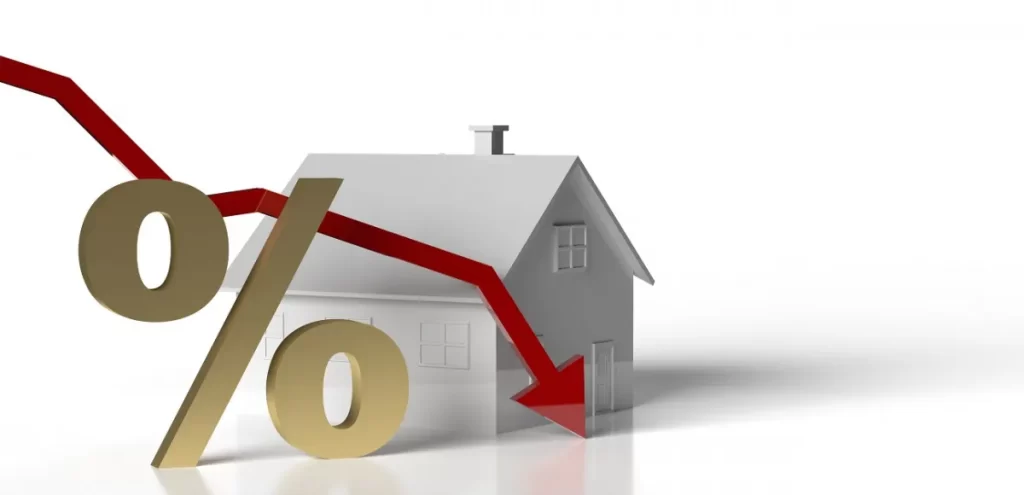
You want to buy a house but are concerned about mortgage costs? You’re not alone. All the high upfront charges […]

When applying for a home loan, one must consider two key factors: Australia’s mortgage rates and your credit scores.
Interest rates representing the monthly amount you repay to the lender indicate how much money will leave your pocket each month; meanwhile, your credit score plays an integral role in determining how risky you are as a borrower.
Your “credit worthiness,” specifically your higher credit score, facilitates superior terms and conditions lenders offer on a mortgage. This process is far more intricate than merely predicting future financial wealth for you or your family; it often becomes the decisive factor in securing a mortgage.
In this article, we will delve into the intricacies of mortgage rates and credit scores in Australia, helping you navigate the complex world of home financing with confidence.
Everyone receives a three-digit number, their credit score, which financial history calculations determine. A lender employs this number as one of numerous criteria to evaluate the risk of lending money to an individual.
Australia has three main credit bureaus: Equifax, Experian and Dun & Bradstreet, now llion.
They calculate your credit scores based on the following factors:
The initial assessment period for most credit bureaus stands at a mere 90 days; however, they continue to track subsequent periods’ payments, providing updates accordingly. The system compares this information to the data in your bank accounts for score calculation.
In Australia, mortgage rates and credit scores are two of the most important things to consider when getting a home loan. The main benefit of having a good credit score is that lenders will offer better terms and conditions on your home loan.
As such, a higher credit score has a positive impact on mortgage rates and increases your chances of making it through the strict loan approval process.
It is important to understand that an individual’s credit score is not a reflection of their character or any kind of personal history; rather, it’s a number that is based on their performance in the past when it comes to paying off debts.
In addition, nowadays, lenders can use your social media accounts, online shopping habits and mobile phone bills to verify your identity.
Diverse score ranges at each credit bureau determine an individual’s level and extent of creditworthiness.
This applies to all three major Australian bureaus. The variability in these scores used for gauging one’s financial reliability underscores a significant point: there is no universal standard; rather, it varies by institution.
The credit reporting body in Australia considers scores above 800 as excellent, while it deems those below 550 as poor. The following delineates the average ranges:
The lender bases mortgage rates on various factors, including the loan’s duration, size and type.
It is crucial to understand that repayments on any home loan you take out will be calculated from the initial borrowing amount; meanwhile, interest rate denotes how much monthly cost accrues for servicing that specific debt.
For instance, consider a scenario where one borrows $ 100,000 over twenty years at an interest rate of 4%.
This implies committing $4000 towards the principal every month while allocating the remaining funds towards servicing the same debt with additional interests set at 4%.
Converting an existing loan to a new one maintains the same length, amount and mortgage type. For instance, you may initially secure a home loan but later decide to increase it at your next repayment date.
This adjustment need not involve switching lenders if desired terms coincide with the first lender still being preferred; this action can serve as part of the refinancing strategy.
The variable rate mortgage, subject to fluctuations in the current interest rate determined by the lender, generally surpasses other rates. However, it remains adaptable, where changes in the financial environment can prompt adjustments.
For instance, when bank interest rates decrease during a recession, the lender can also reduce their variable rates.
This type of loan features an unchanging interest rate that remains untouched until the term’s end; typically, though not invariably, it carries a higher rate than its variable counterpart. However, individuals desiring payment stability may find it beneficial due to the assurance of consistent repayments.
This type of mortgage allows you to purchase a home with only interest payments for a given period or until you reach a certain amount.
Initiate your journey towards securing a mortgage by actively pursuing your credit score evaluation: determine its standing compared to others in similar circumstances.
Requesting free credit reports from the three major bureaus, as listed above, will equip you for this crucial self-assessment, so you can take necessary steps for improvement.
Keep in mind that no categorisation exists into “good” or “bad” credit scores: these evaluations are contingent upon varied factors. Diligent effort on your part can perpetually enhance your credit score, as per the strategies listed in the next section.
There are a few actions that you can undertake to enhance your low credit score:
Certainly, obtaining a mortgage without a credit score is possible; however, this type of lending falls under the subprime category, a classification that generally commands higher associated interest rates than its prime counterpart.
Lenders utilize a person’s credit score to indicate their trustworthiness for loan approval.
A good credit score increases the likelihood of securing favourable interest rates and loan qualifications, whereas individuals with poor scores may face complete denial.
Understanding that your past debt repayment performance, rather than personal attributes, defines how credit bureaus interpret your current credit rating is crucial. Maintaining a healthy credit score is key to unlocking opportunities for your dream home.
Remember, financial responsibility and diligence are crucial as they serve as the gatekeepers, ensuring that you have an attractive record in terms of lending.
Leave a Reply